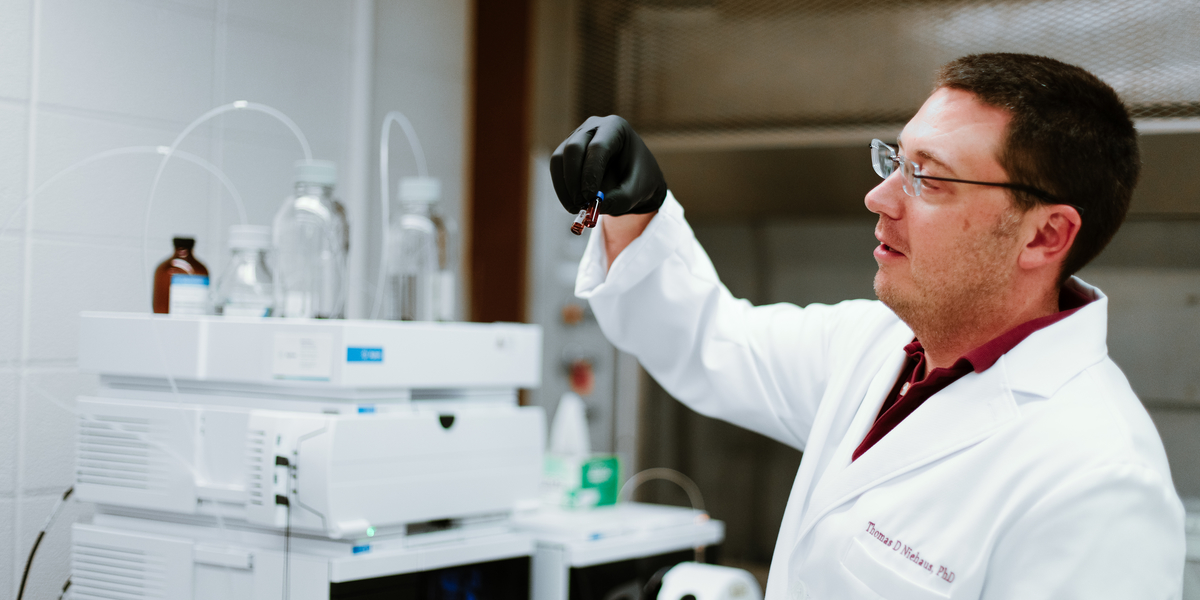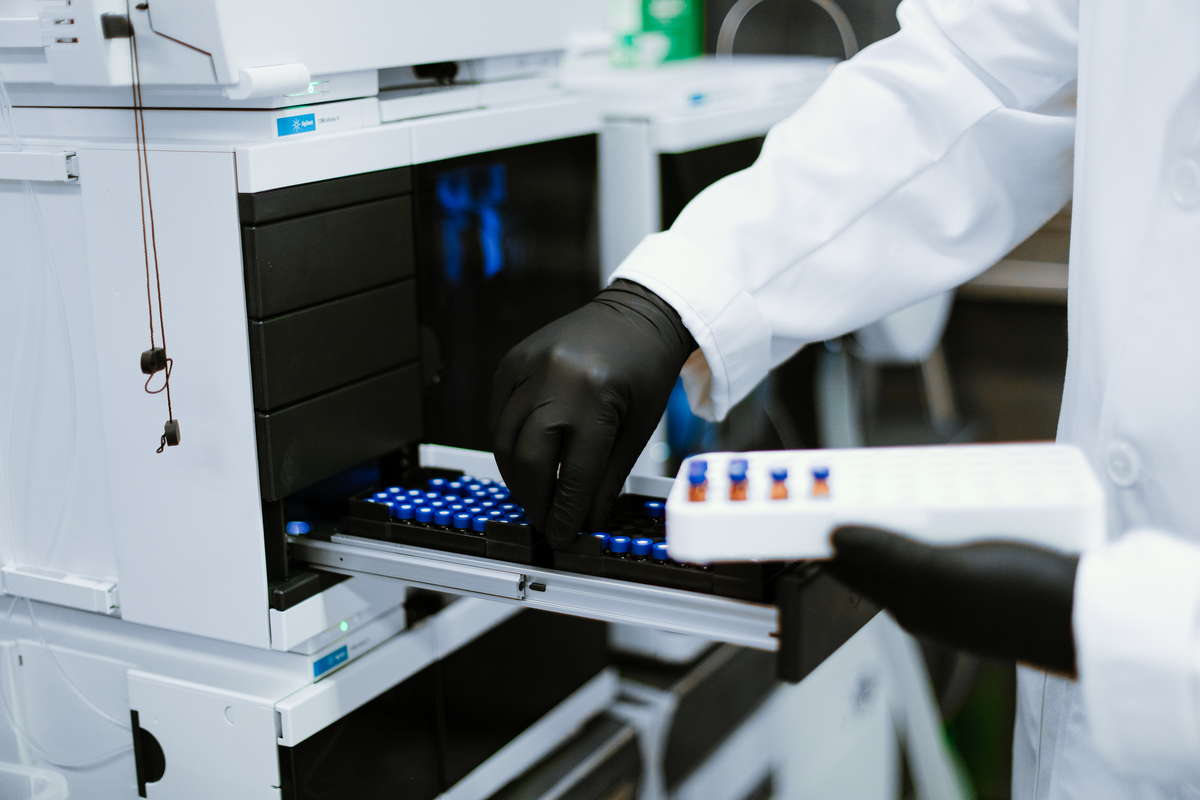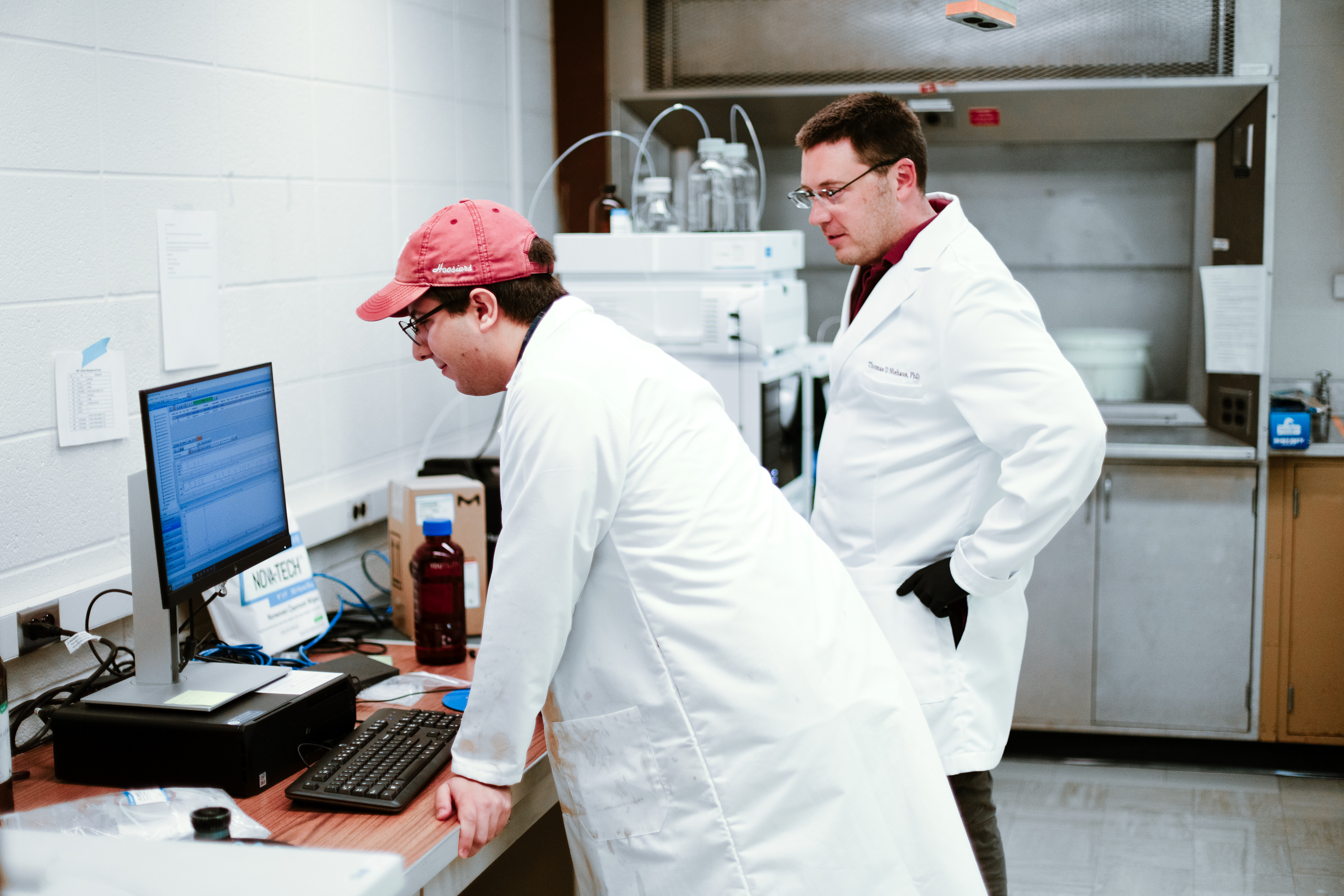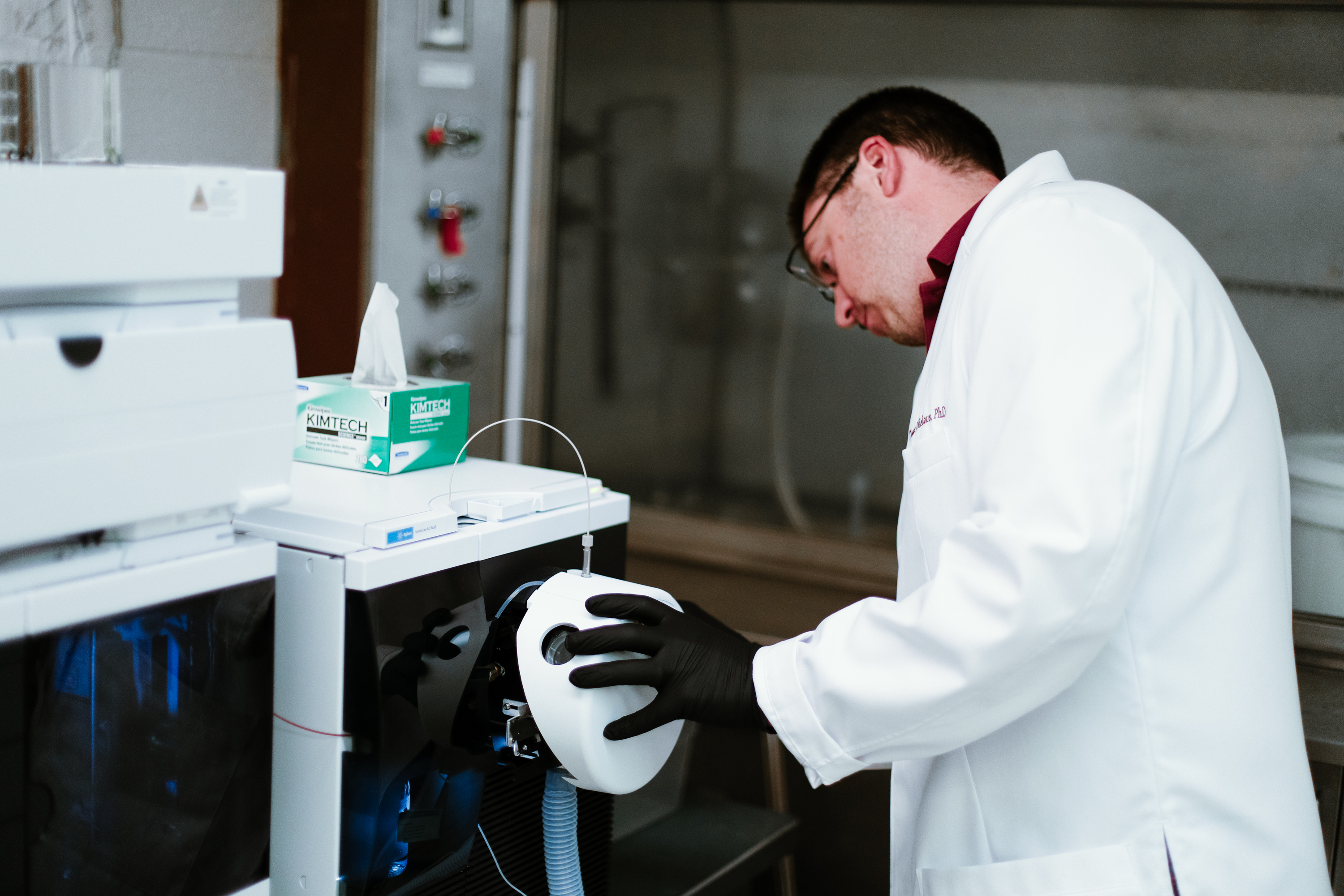
Life is an unstoppable force. Cells maintain countless reactions to keep blood pumping and energy flowing. Of these metabolic processes, the most ubiquitous to all life forms is the Krebs cycle – also known as citric acid cycle or the tricarboxylic acid (TCA) cycle. The Krebs cycle is critical for transforming resources, like food, into usable energy.
Metabolism supports all basic biological functions, which is precisely why it’s important to make sure nothing in the Krebs cycle goes wrong. Tom Niehaus, an associate professor in the Department of Plant and Microbial Biology, is one of many global researchers investigating the repair cycles keeping the Krebs cycle in check. He’s also a recent recipient of a five-year $1.8 million National Institute of Health (NIH) award. The success provides Niehaus’ lab with the opportunity to fund graduate students and postdoctoral researchers for several years, as well as buying new equipment. It’s a big win for advancing a basic science investigation that could fuel treatment for metabolic disease.
The funding comes soon after his lab released groundbreaking research on a newly identified player in the Krebs cycle’s repair pathways, a protein called OAT1. (Read full story about this research here). OAT1 prevents toxic byproducts from interfering with metabolism.
“This grant proposal is really to take the paper we’ve already published and take it a step further,” says Niehaus. “We know that it converts a toxic metabolite into something useful, but we don’t know exactly all the specific ways OAT1 affects the Krebs cycle.”
Niehaus hopes to use specialized scientific approaches like fluxomics and proteomics to answer his lab’s newest questions. These approaches give insight to metabolic rates and the role specific proteins and metabolites play in metabolic networks. A broadened research approach also opens the door to new discoveries.
“We’re interested in things that can go wrong in the Kreb cycle,” says Niehaus. “We’re definitely open to explore new pathways and other parts of the Krebs cycle as well.” – Adara Taylor
Below images show Niehaus and graduate student Antony Zmuda using the mass spectrometer in their lab.


